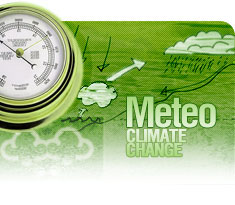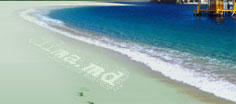https://www.theguardian.com/commentisfree/2021/sep/13/greenland-ice-sheet-melting-fridtjof-nansen
Climate scientists believe that if Greenland continues to rapidly melt, tens of millions of people around the world could face yearly flooding and displacement by 2030
Many people believed he couldn't do it. Ski across the Greenland ice sheet, a vast, unmapped, high-elevation plateau of ice and snow? Madness.
But Fridtjof Nansen, a young Norwegian, proved them wrong. In 1888, he and his small party went light and fast, unlike two large expeditions a few years before. And unlike the others, Nansen traveled from east to west, giving himself no option of retreat to a safe base. It would be forward or die trying. He did it in seven weeks, man-hauling his supplies and ascending to 8,900ft (2,700 meters) elevation, where summertime temperatures dropped to -49F (-45C).
That was then.
This is now:
Last month, for the first time in recorded history, rain fell on the highest point of the Greenland ice sheet. It hardly made the news. But rain in a place historically defined by bitter cold portends a future that will alter coastlines around the world, and drown entire cities.
The Greenland ice sheet contains four times more ice than all of Earth's other glaciers and ice fields combined, outside Antarctica. The largest island in the world, Greenland is more than 36,000 times the size of Manhattan, and ice covers most of it, in many places thousands of feet thick. As carbon dioxide and methane accumulate in our atmosphere, causing our planet to heat (the six warmest years on record have been the last six), the ice sheet disintegrates. Greenland lost more ice in the past decade than it did in the previous century.
Massive summertime meltwater rivers now flow over the ice sheet where, in Nansen's time, no signs of surface water could be found.
If the people of Miami, Shanghai, Tokyo, Mumbai, Lagos, Bangkok and New York are not concerned, they should be. The great Greenland ice melt is a climate crisis sword of Damocles for all coastal, low-lying, densely populated areas. No other single factor will probably contribute more to sea level rise over the next few decades.
A consortium of climate scientists writing two years ago in Nature, a prestigious scientific journal, concluded that if Greenland continues to melt, in one bad-case scenario after another, tens of millions of people could be in danger of yearly flooding and displacement by 2030 - less than nine years from now.
And by the end of this century, when Antarctica, which contains vastly more ice than Greenland, also enters a phase of catastrophic melting, the number of annual flood-prone people could reach nearly half a billion. It's more than farewell, Miami. It's goodbye, Florida.
The assumption that land will always last is no longer valid. "Land is about the only thing that cannot fly away," the English novelist Anthony Trollope once observed.
True. But it can go bone dry - or drown.
After Nansen's Greenland expedition, he oversaw the construction of a small wooden ship named Fram ("Forward"), designed to enter the Arctic pack ice in an attempt to reach the north pole. Later, he mentored the explorers Roald Amundsen, Robert Falcon Scott and Ernest Shackleton. His final act, however, was his most inspiring. As high commissioner for refugees for the League of Nations, he devised a passport to repatriate thousands left homeless after the Great War, and was awarded the 1922 Nobel peace prize.
Nansen did what humankind must now do. He transcended himself. He respected science, and cared deeply for others. In the face of great challenges today, we can - and must - do the same.
A good example is Jason Box, who Jeff Goodell, in his 2017 book The Water Will Come, describes as "a maverick scientist and Greenland ice junkie who got a lot of attention in 2012 when he publicly predicted just weeks before the summer melt season that Greenland would experience a record-breaking year for ice melt".
Raised and educated in Colorado, Box suspected that soot from wildfires in the American west and Canada, and from coal-fired power plants in the industrial north, would enter the atmosphere and travel far. When it settled in Greenland, the soot would darken the ice sheet and make it absorb, not reflect, solar energy. The result: the ice sheet would melt like gangbusters.
Which is exactly what has happened.
In 2014, Box was stunned to find the ice sheet so dark. He has since said that humanity's burning of fossil fuels has probably set in motion nearly 70ft of sea level rise. A bold prediction, and not out of character for Box, who has spent more than a year on the ice.
"I like ice because it's nature's thermometer," he told Goodell. "It's not political. As the world heats up, ice melts, it's simple. It's the kind of science that everyone can understand."
While science, endeavoring to avoid alarmism, can be overly cautious, science isn't the problem. Disinformation and a lack of political will are the problems.
To save the Greenland ice sheet - and Florida - will require a Nansen-esque transformation on steroids, something inspired by, but much larger than, President Franklin D Roosevelt's New Deal. To begin, we need to elect representatives who respect science, and accept the magnitude of what we're up against. If they do not, they must be defeated.
It's time to put our planet first.
A little more than a thousand years ago, back when the world seemed large and wondrous and unknown, the Vikings settled Greenland. For every one person alive on earth back then, there are 25 today, most of us trapped in a fossil fuel economy that has given us great prosperity but now must be replaced. By what? By trains powered by wind, trucks powered by the sun, highways made of solar panels. Fantasy? No, they already exist. And are just the beginning.
We are all on Greenland's ice sheet with Nansen now. It's forward or fail. No turning back.
- A frequent contributor to the Guardian, Kim Heacox is the author of many books, including The Only Kayak, a memoir, and Jimmy Bluefeather, a novel, both winners of the National Outdoor Book Award. He lives in Alaska



 Română
Română English
English


